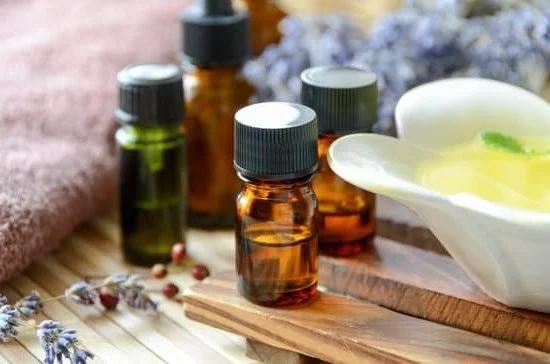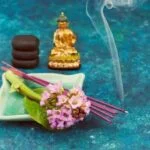Aromatherapy oils have been used for centuries to promote physical and mental well-being. But how do you use them? In this article, we will explore the world of aromatherapy oils, from understanding what they are and how they work to their various benefits and methods of use.
Aromatherapy oils, also known as essential oils, are concentrated liquids extracted from plants, flowers, and herbs. These oils are believed to have therapeutic properties that can promote relaxation, alleviate stress, improve sleep quality, and even boost mood and concentration. The use of aromatherapy oils is based on the idea that inhaling the aroma or applying the oil topically can have a positive impact on physical and emotional health.
When it comes to choosing the right aromatherapy oils, it’s important to understand the different types available and their specific benefits. From lavender for relaxation to peppermint for headaches, each oil has unique properties that can address various wellness concerns.
In the following sections, we will delve deeper into these topics and provide tips for beginners on how to use aromatherapy oils safely and effectively in their daily routine. So let’s get started by exploring the fascinating world of aromatherapy oils.
Choosing the Right Aromatherapy Oils
Aromatherapy oils are derived from natural plant extracts and have been used for centuries to promote physical and mental well-being. When choosing the right aromatherapy oils, it’s important to understand the different types and their benefits in order to maximize their effectiveness. There are various types of aromatherapy oils, each with its own unique properties and benefits.
Essential oils are the most commonly used type of aromatherapy oils and are extracted from the leaves, flowers, stems, or roots of plants through methods such as steam distillation or cold-pressing. These highly concentrated oils are known for their therapeutic properties and can be used for a wide range of purposes, including relaxation, stress relief, and pain management.
Carrier oils, on the other hand, are base oils that are often used to dilute essential oils before being applied to the skin in massages or skincare routines.
When selecting aromatherapy oils, it’s essential to consider their individual benefits and properties. For example, lavender oil is renowned for its calming and sedative effects, making it an excellent choice for reducing anxiety and improving sleep quality.
Peppermint oil is known for its invigorating properties and can be used to alleviate headaches or improve mental clarity. Tea tree oil is valued for its antibacterial and antifungal properties and is often used in skincare products to treat acne or other skin conditions.
Incorporating different aromatherapy oils into your self-care routine can have a significant impact on your overall well-being. Understanding the unique benefits of each type of oil will allow you to make informed choices when selecting the right oils for your specific needs.
| Aromatherapy Oil | Benefits |
|---|---|
| Lavender Oil | Calming and sedative effects; reduces anxiety and improves sleep quality. |
| Peppermint Oil | Invigorating properties; alleviates headaches and improves mental clarity. |
| Tea Tree Oil | Antibacterial and antifungal properties; treats acne and other skin conditions. |
The Benefits of Aromatherapy Oils
Aromatherapy oils have been used for centuries to promote physical and mental well-being. These essential oils are derived from natural plant extracts and are known for their therapeutic properties. They can be inhaled, applied to the skin, or even ingested to provide a wide range of health benefits. In this section, we will explore the numerous advantages that aromatherapy oils can offer for both the body and the mind.
One of the most significant benefits of aromatherapy oils is their ability to reduce stress and anxiety. Certain essential oils, such as lavender, chamomile, and bergamot, have been shown to have calming effects on the mind and body. Inhaling these fragrances or using them in a massage oil can help alleviate tension and promote relaxation.
In addition to stress relief, aromatherapy oils can also aid in improving overall mood and mental health. Oils like lemon, peppermint, and eucalyptus are known for their invigorating properties that can help uplift spirits and combat feelings of fatigue or depression. The use of these oils in a diffuser or as part of a soothing bath can contribute to a more positive mindset. Below is an example of how you might structure your data into an HTML table.
| Physical Health Benefits | Mental Health Benefits |
|---|---|
| Reduction in pain and inflammation | Aids in reducing stress and anxiety |
| Boosts immune system function | Improves mood and promotes relaxation |
Getting Started With Aromatherapy
Aromatherapy oils have been used for centuries for their various health benefits, and getting started with these oils can seem overwhelming for beginners. However, with the right knowledge and guidance, using aromatherapy oils can be a simple and effective way to improve your overall well-being. Here are some tips for beginners on how to use aromatherapy oils safely and effectively:
- Start by choosing high-quality essential oils from reputable sources. Look for organic or pure essential oils to ensure that you are getting the best quality product.
- When using aromatherapy oils, it is important to dilute them properly before applying them to the skin. Essential oils are highly concentrated and can cause irritation if not diluted correctly. Always follow recommended dilution ratios when using essential oils in massage oils, bath products, or skincare applications.
- Understanding the different methods of using aromatherapy oils is crucial for beginners. From diffusers to topical application, there are various ways to incorporate aromatherapy into your daily routine. Experiment with different methods to find what works best for you.
Learning how use aromatherapy oils safely and effectively will help you experience all the benefits they have to offer. As a beginner, it’s important to start slow and gradually incorporate aromatherapy into your self-care routine in a way that feels comfortable and enjoyable for you. With these tips in mind, you can begin your journey with aromatherapy confidently and reap the many benefits that come with it.
Different Methods of Using Aromatherapy Oils
Aromatherapy oils can be incorporated into your daily life in a variety of ways, each offering unique benefits and experiences. Here are some different methods to use aromatherapy oils:
1. Diffusers: One of the most popular and effective ways to use aromatherapy oils is through diffusers. These devices disperse the essential oil particles into the air, allowing you to breathe in the aroma and experience its therapeutic effects. There are different types of diffusers available, such as ultrasonic, nebulizing, heat, and evaporative diffusers, each with its own method of dispersing the oils.
2. Massage Oils: Another common method of using aromatherapy oils is through massage oils. By diluting essential oils in a carrier oil, such as coconut or jojoba oil, you can create a customized massage oil blend that allows for both topical application and inhalation of the aroma during the massage. This method can help promote relaxation and reduce muscle tension while benefiting from the aromatic properties of the oils.
3. Bathing: Adding a few drops of aromatherapy oils to a warm bath can turn your bathing experience into a luxurious and therapeutic escape. The steam from the bath water helps disperse the aroma of the oils while also allowing your skin to absorb their beneficial properties. This method can be especially beneficial for relaxation and stress relief after a long day.
Regardless of which method you choose to use aromatherapy oils, it’s important to always follow safety guidelines and use them responsibly. Whether it’s through diffusers, massage oils, or bathing, incorporating these natural remedies into your daily routine can have positive effects on both your physical and mental well-being.
Aromatherapy Oils for Stress and Anxiety
Aromatherapy has long been used as a natural remedy for stress and anxiety. The use of essential oils in aromatherapy can help alleviate symptoms of both stress and anxiety, promoting a sense of calm and relaxation. Many essential oils have proven calming effects on the mind and body, making them an ideal solution for those seeking relief from everyday stressors or more severe forms of anxiety.
Calming Essential Oils
Certain essential oils have specific properties that make them particularly effective at reducing stress and anxiety. Lavender, chamomile, and bergamot are among the most popular choices for their calming and soothing effects on the nervous system. These oils can be diffused in the air using a diffuser, added to a warm bath, or even applied topically when diluted with a carrier oil.
Using Aromatherapy Oils for Stress Relief
Incorporating aromatherapy oils into your daily routine can provide ongoing relief from stress and anxiety. Simply adding a few drops of lavender or ylang-ylang oil to a warm bath before bedtime can promote relaxation and improve sleep quality. Diffusing chamomile or rose oil in your home or workplace throughout the day can also help create a calming atmosphere, reducing feelings of tension and unease.
Blend Creation for Stress Relief
For those looking to create their own customized blend for stress relief, combining different essential oils can provide unique benefits. Mixing bergamot with lavender or creating a blend of frankincense and lemon can offer powerful stress-relieving properties. Experimenting with various combinations allows individuals to find the perfect blend that works best for their specific needs.
Overall, learning how to use aromatherapy oils effectively for stress and anxiety involves some experimentation to find the right oils and methods that work best for each individual. With regular use, aromatherapy can become an important tool in managing daily stresses while promoting overall well-being.
Aromatherapy Oils for Sleep
The Power of Aromatherapy for Sleep
Aromatherapy oils have been used for centuries to promote relaxation and improve sleep quality. The use of certain essential oils can have a calming and sedative effect on the body, making them an effective natural remedy for those struggling with insomnia or sleep disturbances. By incorporating aromatherapy oils into your bedtime routine, you can create a soothing and tranquil environment that will help you drift off into a restful slumber.
Best Essential Oils for Sleep
When it comes to using aromatherapy oils for sleep, certain essential oils are particularly effective in promoting relaxation and improving sleep quality. Lavender oil is perhaps the most well-known essential oil for sleep, known for its ability to reduce stress and anxiety while promoting deep relaxation.
Another popular choice is chamomile oil, which is revered for its calming properties and ability to induce sleep. Other beneficial essential oils include ylang-ylang, bergamot, cedarwood, and sandalwood, all of which have sedative effects that can help improve sleep quality.
How to Use Aromatherapy Oils for Sleep
There are several ways to incorporate aromatherapy oils into your bedtime routine. One of the most common methods is through the use of a diffuser, which disperses the aroma throughout the air, creating a peaceful atmosphere conducive to relaxation and sleep.
Another popular method is to add a few drops of essential oil to a warm bath or blend them with a carrier oil for a relaxing massage before bed. Whether inhaled or applied topically, these methods allow the soothing scents of essential oils to work their magic on both the mind and body, helping you achieve better sleep naturally.
Incorporating Aromatherapy Oils Into Your Self-Care Routine
In conclusion, aromatherapy oils can be a powerful addition to your self-care routine, providing both physical and mental health benefits. By understanding the different types of aromatherapy oils and their unique benefits, you can choose the right ones to address your specific needs. Whether you are seeking relief from stress and anxiety or looking to improve your sleep quality, there is an aromatherapy oil that can help.
When it comes to incorporating aromatherapy oils into your daily life, there are various methods to explore. From using a diffuser to inhale the aroma of the oils, to adding them to massage oils or bath products, there are countless ways to experience the benefits of aromatherapy. It’s important for beginners to educate themselves on how use aromatherapy oils safely and effectively in order to get the most out of their self-care routine.
As you begin your journey with aromatherapy oils, it’s essential to approach it as a form of self-care that requires regular practice. By making a conscious effort to incorporate aromatherapy into your daily routine, whether it’s through diffusion, topical application, or inhalation, you can experience the full range of benefits that these natural remedies have to offer.
With time and dedication, you will find that using aromatherapy oils becomes second nature and an indispensable part of your overall well-being regimen.
Frequently Asked Questions
How Do You Use Essential Oils for Beginners?
Using essential oils for beginners involves starting with a few basic oils like lavender, peppermint, or lemon. It’s important to dilute the essential oils with a carrier oil before applying them to the skin and to start with just a few drops at a time.
Beginners should also educate themselves on the properties and safety precautions of each oil before use.
How Do People Use Aromatherapy?
People use aromatherapy in various ways, such as through inhalation by using diffusers, spritzing room sprays, or adding a few drops to a bath. Some also apply diluted essential oils topically for massages or skincare treatments. Aromatherapy can also be incorporated into yoga or meditation practices for relaxation and stress relief.
Can Aromatherapy Oils Be Used on Skin?
Aromatherapy oils can be used on the skin, but it is important to always dilute them properly with a carrier oil before application to avoid irritation or adverse reactions. Not all essential oils are safe for direct skin contact, so it’s crucial to research and understand the specific guidelines for each type of oil being used.
Always perform a patch test before widespread application to ensure no negative reactions occur.

Are you looking for a natural way to improve your health and wellbeing?
If so, aromatherapy may be the answer for you.





